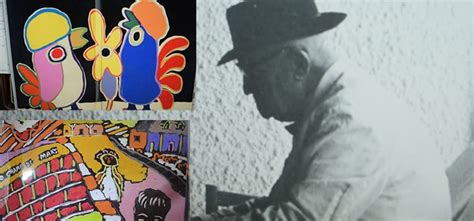A Quote by Malcolm de Chazal
Laughter, while it lasts, slackens and unbraces the mind, weakens the faculties and causes a kind of remissness and dissolution in all the powers of the soul; and thus it may be looked on as weakness in the composition of human nature. But if we consider the frequent relieves we receive from it and how often it breaks the gloom which is apt to depress the mind and damp our spirits, with transient, unexpected gleams of joy, one would take care not to grow too wise for so great a pleasure of life.
Quote Topics
Related Quotes
How do we receive the highest mystery of Divine love to us ? the mystery of the Christian faith? With our mind, heart and life; with our free will? Are all the three powers of our souls penetrated by holy faith, as were the souls of the saints? The kingdom of heaven 'is like leaven, which a woman took and hid in three measures of meal till the whole was leavened' (Lk. 13:21). The three measures are the three powers of the soul.
There are hundreds of thousands of microbes surrounding us, but they cannot harm us unless we become weak, until the body is ready and predisposed to receive them. There may be a million microbes of misery floating about us. Never mind! They dare not approach us, they have no power to get a hold on us, until the mind is weakened. This is the great fact: strength is life. Weakness is death. Strength is felicity, life eternal, immortal. Weakness is constant strain and misery: weakness is death
All problems in life arise from some weakness of mind. All weakness of mind is due to the mind's ignorance of its own essential nature, which is universal and the source of infinite energy and intelligence. ... In order to root out any problem of life it is only necessary to be brought out of ignorance, to be brought to knowledge.
Error is a supposition that pleasure and pain, that intelligence, substance, life, are existent in matter. Error is neither Mind nor one of Mind's faculties. Error is the contradiction of Truth. Error is a belief without understanding. Error is unreal because untrue. It is that which stemma to be and is not. If error were true, its truth would be error, and we should have a self-evident absurdity -namely, erroneous truth. Thus we should continue to lose the standard of Truth.
It is an exquisite and beautiful thing in our nature, that, when the heart is touched and softened by some tranquil happiness or affectionate feeling, the memory of the dead comes over it most powerfully and irresistibly. It would seem almost as though our better thoughts and sympathies were charms, in virtue of which the soul is enabled to hold some vague and mysterious intercourse with the spirits of those whom we loved in life. Alas! how often and how long may these patient angels hover around us, watching for the spell which is so soon forgotten!
Pain and pleasure, good and evil, come to us from unexpected sources. It is not there where we have gathered up our brightest hopes, that the dawn of happiness breaks. It is not there where we have glanced our eye with affright, that we find the deadliest gloom. What should this teach us? To bow to the great and only Source of light, and live humbly and with confiding resignation.
the only way in which a human being can make some approach to knowing the whole of a subject, is by hearing what can be said about it by persons of every variety of opinion, and studying all modes in which it can be looked at by every character of mind. No wise man ever acquired his wisdom in any mode but this; nor is it in the nature of human intellect to become wise in any other manner.
The moral faculties are generally esteemed, and with justice, as of higher value than the intellectual powers. But we should always bear in mind that the activity of the mind in vividly recalling past impressions is one of the fundamental though secondary bases of conscience. This fact affords the strongest argument for educating and stimulating in all possible ways the intellectual faculties of every human being.



































